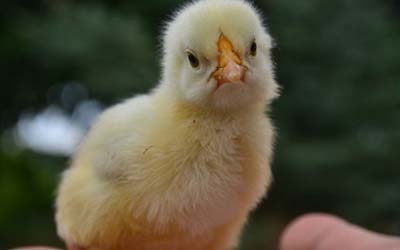
spring chicks may carry Salmonella
Press Release FOR IMMEDIATE RELEASE: March 31, 2021 MDHHS CONTACT: Chelsea Wuth, 517-241-2112, WuthC@michigan.gov MDHHS and MDARD remind parents spring chicks may carry Salmonella LANSING, Mich. – Health experts at the Michigan Department of Health and Human Services (MDHHS) and the Michigan Department of Agriculture and Rural Development (MDARD) are warning parents about the potential for baby poultry to carry Salmonella. Salmonella is a common bacteria found in the droppings of poultry and can cause illness in people. Salmonella germs may contaminate feathers, feet and beaks of birds, as well as cages, coops, and the environment where the birds live and roam. “Washing your hands thoroughly before and after handling chicks and other poultry protects both you and your family from the risk of Salmonella, and also helps keep the birds healthy,” said Dr. Joneigh Khaldun, chief medical executive and chief deputy director for health. “Even birds appearing cute, healthy and clean can carry bacteria that can make people sick.” In 2020, there were 17 nationwide outbreaks of Salmonella illness linked to contact with live poultry, causing illness in 1,722 people in 50 states. Of these illnesses, 24% were children younger than 5 years of age. Michigan reported 73 cases, and 18 cases (25%) were in children under the age of 18 years. During spring, live baby poultry can be ordered from hatcheries or available at stores in a way that children may be able to reach and touch the birds or areas where the birds are contained. This is one way people become exposed to harmful bacteria that leads to illness. Salmonella can cause diarrhea, vomiting, fever and/or abdominal cramps lasting four to seven days or more and infections can be especially serious for the very young, the very old and those with weakened immune systems. Baby poultry have special requirements for warmth and protection. Backyard flock owners may not be aware of the risk of Salmonella from baby poultry and consequently, may keep the birds inside their home. Potential poultry owners should plan ahead to provide a proper space that is safe for the birds and for the people in the household by giving live poultry their own shelter outside of the home. “In order to keep birds healthy, it is important to plan ahead,” said State Veterinarian Nora Wineland, DVM. “Before bringing them home, it is essential to create a suitable safe space for them to grow that can adapt to their needs as they continue to develop. Also, to ensure their continued health, make sure to identify a veterinarian that can assist in their care.” Follow these recommendations to protect your household:
It is also recommended to remain outdoors when cleaning any equipment associated with raising or caring for poultry, such as cages, feed, water containers and other materials. For more information, visit the Centers for Disease Control and Prevention website. |


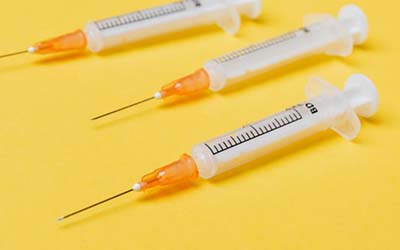

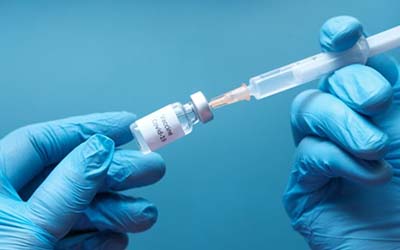


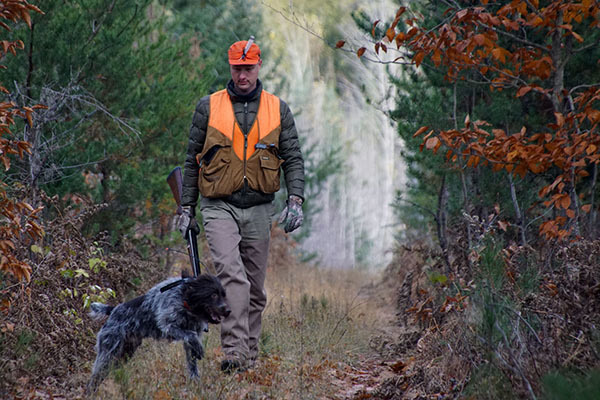 March 30, 2021
March 30, 2021
 One hundred years ago today, the Michigan Department of Conservation – the precursor to the Michigan Department of Natural Resources – was created as part of a state government reorganization effort by then Gov. Alex Groesbeck.
One hundred years ago today, the Michigan Department of Conservation – the precursor to the Michigan Department of Natural Resources – was created as part of a state government reorganization effort by then Gov. Alex Groesbeck.
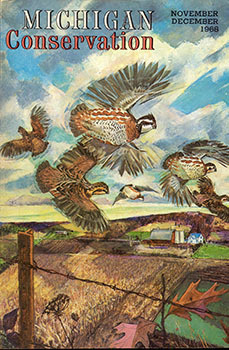 In 1968, the name of the Michigan Department of Conservation was changed to the Michigan Department of Natural Resources to reflect widening responsibilities.
In 1968, the name of the Michigan Department of Conservation was changed to the Michigan Department of Natural Resources to reflect widening responsibilities.
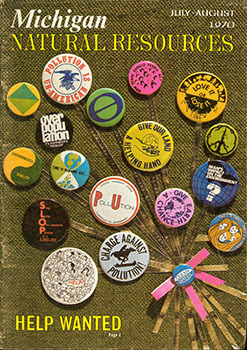 “That’s one of the remarkable things about what we have here in this state, that the story of the Department of Natural Resources is as much a story about the citizen conservationists across our state and throughout our history who have supported our work, stood side-by-side with us as we have worked to recover species, help to identify places the department needs to be pointing effort and pointing work towards,” Eichinger said. “The species that we have stewardship responsibility for are the fortunate beneficiaries of that tremendous partnership with state government, our citizens, federal actors, the non-profit community. It’s a fantastic and important part of the story of conservation.”
“That’s one of the remarkable things about what we have here in this state, that the story of the Department of Natural Resources is as much a story about the citizen conservationists across our state and throughout our history who have supported our work, stood side-by-side with us as we have worked to recover species, help to identify places the department needs to be pointing effort and pointing work towards,” Eichinger said. “The species that we have stewardship responsibility for are the fortunate beneficiaries of that tremendous partnership with state government, our citizens, federal actors, the non-profit community. It’s a fantastic and important part of the story of conservation.”
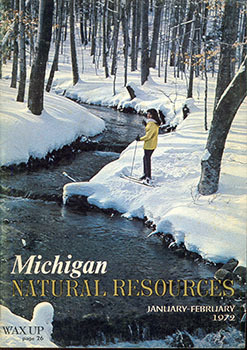 “We obviously are dealing with the negative effects of climate change and how that’s expressing itself on the landscapes that we manage,” Eichinger said. “And so, we’re going to need to start to pivot our management approach just a bit to be thinking a little bit more about how we create resiliency on the landscape in the face of change through climate change: invasive species, fish and wildlife health, those kinds of things.”
“We obviously are dealing with the negative effects of climate change and how that’s expressing itself on the landscapes that we manage,” Eichinger said. “And so, we’re going to need to start to pivot our management approach just a bit to be thinking a little bit more about how we create resiliency on the landscape in the face of change through climate change: invasive species, fish and wildlife health, those kinds of things.”
 Stay informed, stay safe:
Stay informed, stay safe: